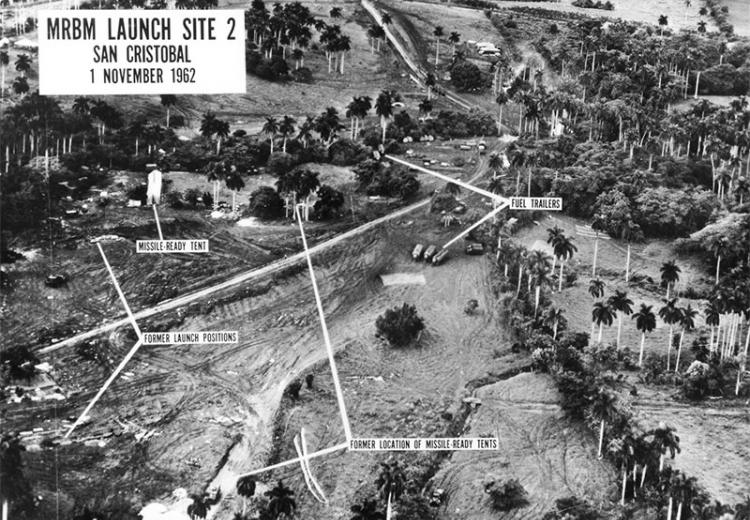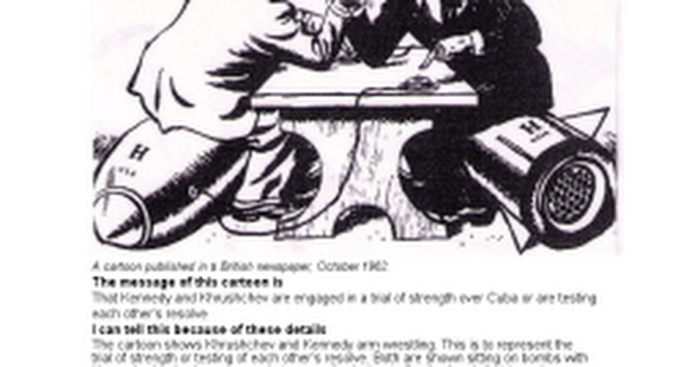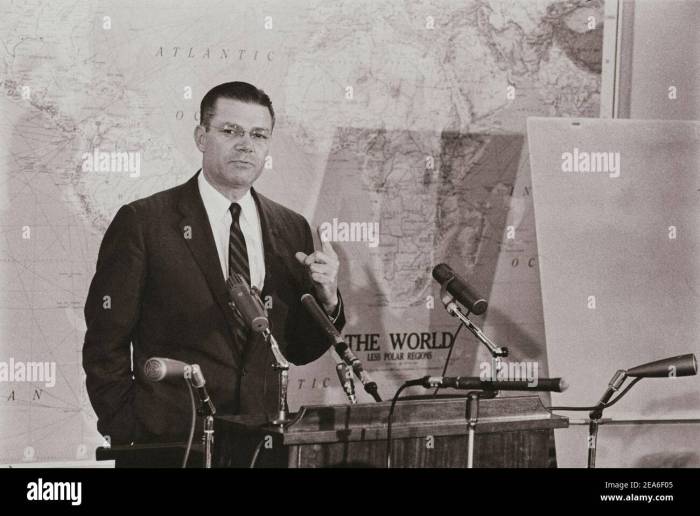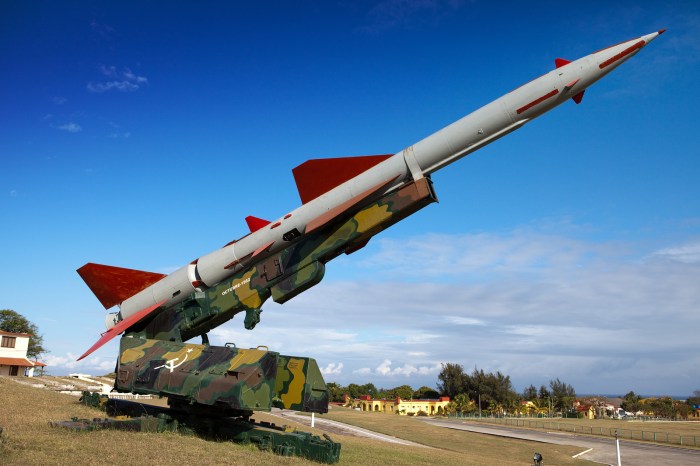Embarking on an intellectual odyssey, we delve into questions about the Cuban Missile Crisis, a pivotal moment in Cold War history that brought the world to the brink of nuclear war. This exploration unravels the intricate tapestry of events, key players, and profound implications, providing a deeper understanding of this defining chapter in international relations.
Unveiling the historical context, we trace the escalating tensions between the United States and the Soviet Union, culminating in the clandestine deployment of Soviet nuclear missiles in Cuba. The narrative unfolds through a detailed timeline, highlighting crucial moments that shaped the course of the crisis.
Historical Context

The Cuban Missile Crisis was a pivotal moment in the Cold War, a period of intense geopolitical tension between the United States and the Soviet Union. It was triggered by the Soviet Union’s secret deployment of nuclear missiles in Cuba, just 90 miles from the coast of Florida.
Key Events
- 1961:Bay of Pigs Invasion – A failed attempt by U.S.-backed Cuban exiles to overthrow the communist government of Fidel Castro.
- 1962, July:Soviet Union begins secretly deploying nuclear missiles in Cuba.
- 1962, October 14:U.S. spy planes discover the missile sites.
- 1962, October 22:President Kennedy announces a naval blockade of Cuba and demands the removal of the missiles.
- 1962, October 26:U.S. and Soviet ships clash in the Caribbean, bringing the world to the brink of nuclear war.
- 1962, October 28:Soviet leader Khrushchev agrees to withdraw the missiles in exchange for a U.S. pledge not to invade Cuba and to remove its own nuclear missiles from Turkey.
Key Players and Perspectives

United States
- President John F. Kennedy:Faced with the threat of nuclear war, Kennedy imposed a naval blockade on Cuba and demanded the removal of the missiles.
- Secretary of State Dean Rusk:Played a key role in negotiations with the Soviet Union.
- Secretary of Defense Robert McNamara:Advocated for a military solution to the crisis but was overruled by Kennedy.
Soviet Union, Questions about the cuban missile crisis
- Premier Nikita Khrushchev:Ordered the deployment of nuclear missiles in Cuba to counterbalance U.S. nuclear superiority.
- Foreign Minister Andrei Gromyko:Led the Soviet delegation in negotiations with the United States.
- Defense Minister Rodion Malinovsky:Prepared Soviet forces for a possible military confrontation with the United States.
Cuba
- Prime Minister Fidel Castro:Supported the Soviet deployment of missiles in Cuba as a deterrent against a U.S. invasion.
- Foreign Minister Raúl Roa:Represented Cuba in negotiations with the United States and the Soviet Union.
Impact on International Relations

Nuclear Disarmament
- The Cuban Missile Crisis highlighted the dangers of nuclear proliferation and led to a renewed focus on nuclear disarmament.
- The United States and the Soviet Union signed the Limited Nuclear Test Ban Treaty in 1963, which prohibited nuclear testing in the atmosphere, outer space, and underwater.
Balance of Power
- The crisis shifted the balance of power in favor of the United States, as it demonstrated the superiority of U.S. nuclear capabilities.
- The Soviet Union recognized the need to avoid direct confrontation with the United States and shifted to a strategy of détente.
Domestic Reactions and Legacy: Questions About The Cuban Missile Crisis
United States
- The crisis raised public awareness about the threat of nuclear war and led to increased support for civil defense measures.
- Kennedy’s handling of the crisis boosted his popularity and strengthened his position as a leader.
Soviet Union, Questions about the cuban missile crisis
- The crisis damaged Khrushchev’s reputation and weakened his position within the Soviet leadership.
- The Soviet Union faced increased pressure from the international community to withdraw its nuclear missiles from Cuba.
Cuba
- The crisis solidified Cuba’s alignment with the Soviet Union and led to increased economic and military support from the Soviet bloc.
- The U.S. embargo against Cuba, imposed during the crisis, remains in place to this day.
Lessons Learned

Importance of Diplomacy
- The Cuban Missile Crisis demonstrated the importance of diplomacy and negotiation in resolving international crises.
- Kennedy’s decision to avoid a military confrontation with the Soviet Union averted a nuclear war.
Need for Communication
- The crisis highlighted the need for clear and open communication between superpowers to prevent misunderstandings and escalation.
- The establishment of the Moscow-Washington Hotline in 1963 facilitated direct communication between the U.S. and Soviet leaders.
Importance of Nuclear Non-Proliferation
- The Cuban Missile Crisis reinforced the need for international cooperation to prevent the spread of nuclear weapons.
- The Nuclear Non-Proliferation Treaty, signed in 1968, aimed to limit the number of nuclear-armed states and promote nuclear disarmament.
FAQs
What were the key factors leading to the Cuban Missile Crisis?
The crisis was triggered by a combination of factors, including the failed Bay of Pigs invasion, the ongoing arms race between the US and USSR, and the perceived threat to Soviet security posed by US nuclear missiles in Turkey.
How did the crisis unfold?
In October 1962, the US discovered Soviet nuclear missiles being deployed in Cuba. President Kennedy imposed a naval blockade of Cuba and demanded their removal. After tense negotiations, the Soviets agreed to withdraw the missiles in exchange for a US pledge not to invade Cuba and to remove its own nuclear missiles from Turkey.
What were the consequences of the Cuban Missile Crisis?
The crisis had a profound impact on international relations, leading to a reduction in tensions between the US and USSR and the establishment of a hotline between the two superpowers. It also highlighted the importance of nuclear disarmament and the need for effective crisis management.